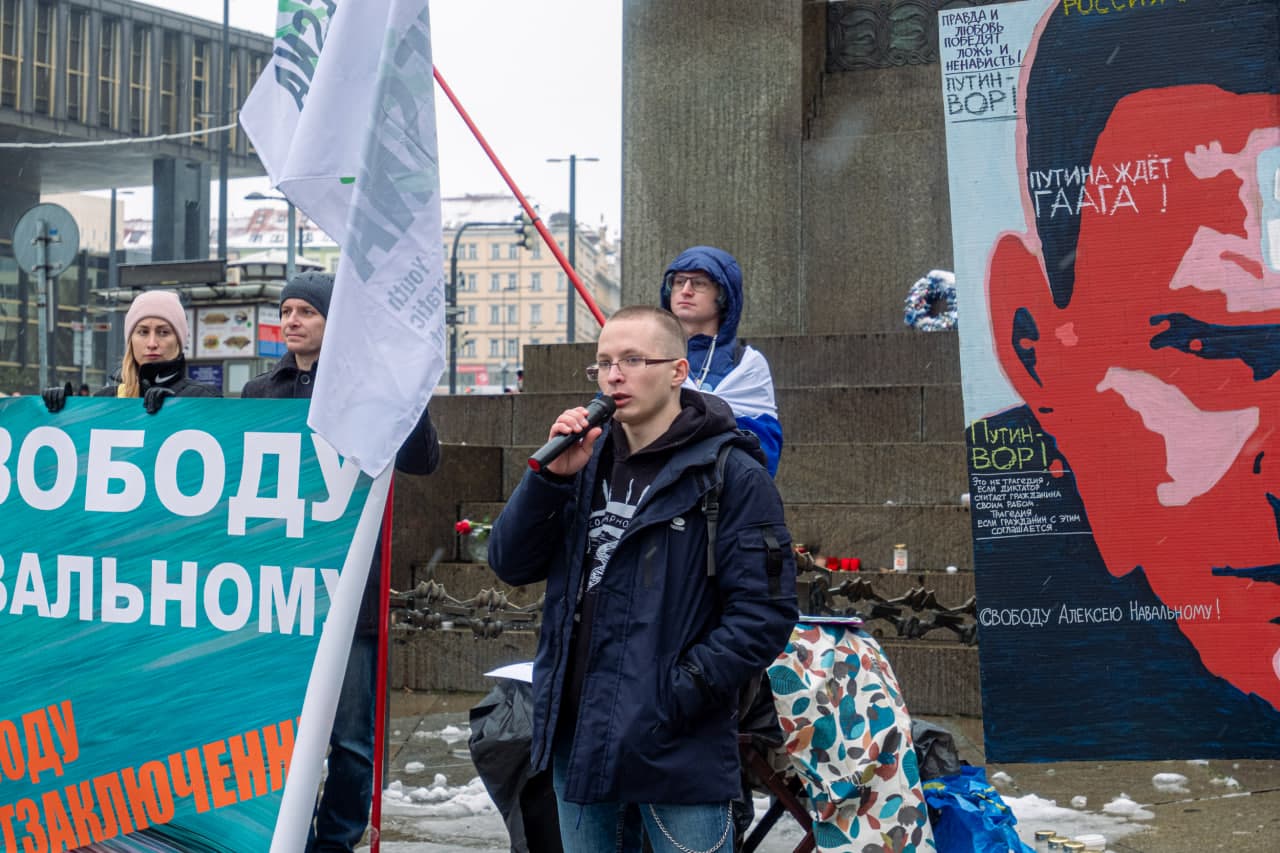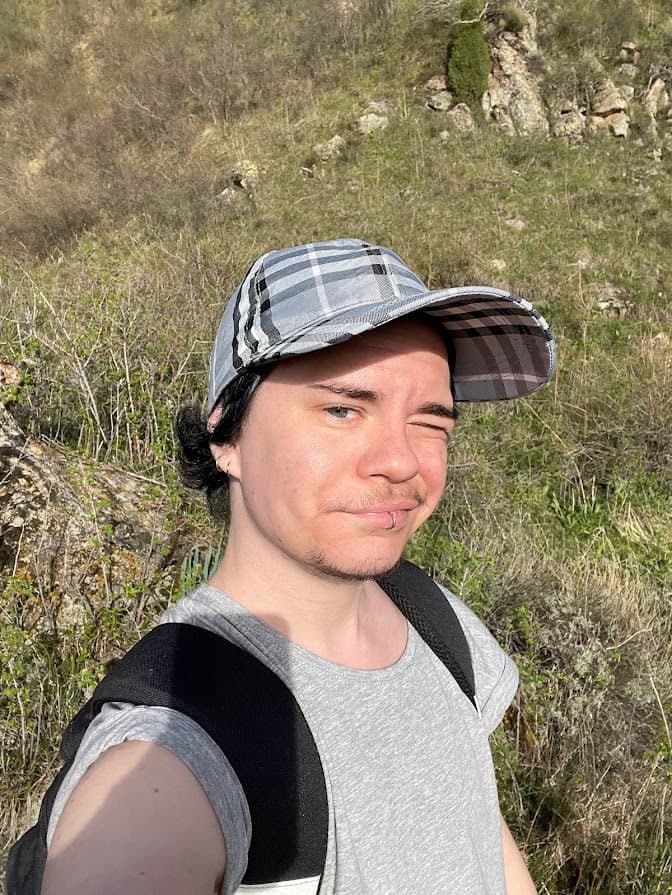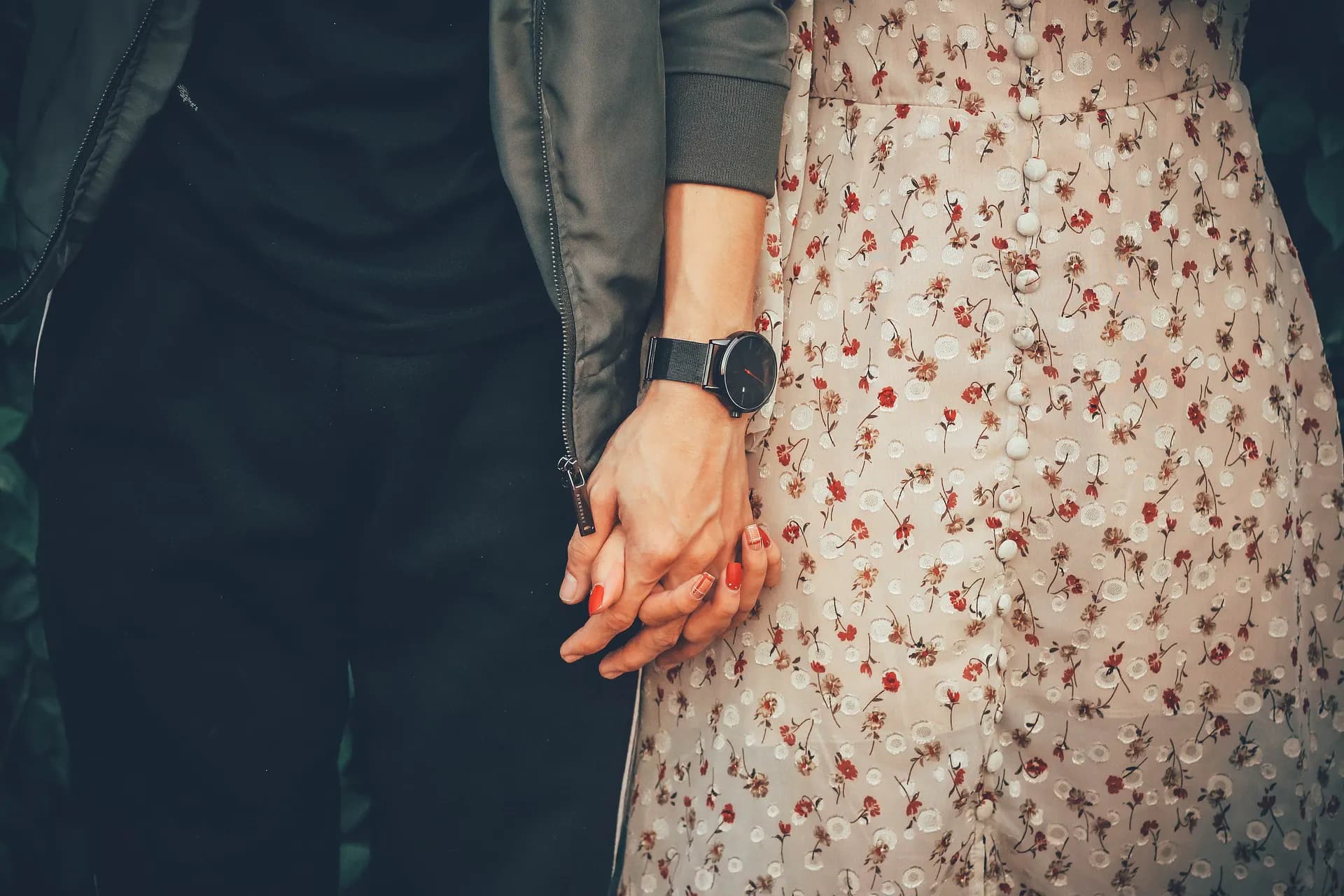Kysh (Andrei)
...Gebt nicht auf und verzweifelt nicht, tut, was ihr für richtig haltet. Russland wird auf jeden Fall frei sein.


Russian Democratic Society (RDS) - is a community of Russian-speaking immigrants who are based in the UK, telling the world about human rights violations in Russia and providing humanitarian aid to Ukraine. What is happening in the organization now? How has their work changed over this year? Who supports the volunteers? How to help citizens of Ukraine in London? We spoke to RDS representatives to find out about it.
First of all, please introduce your job. Who are you and what do you do? How did it all start?
Masha Budryte. It all started with a small group in Telegram called Protest London. When the war started, there were a lot more people ready to go out on the streets and speak about their disagreement than before the war. Ukrainian activists asked us not to bring Russian symbols to their rallies, and I can understand that. But it was important for us to say that we are citizens of the Russian Federation and we are against the war. The number one task was for people not to identify all Russians with military aggression.
Our first rally was
held on May 8, 2022. At that time it was unclear how to gather people and
whether anyone would come to the rally at all. Nevertheless, almost 700 people
came to Parliament Square in London. With the help of a projector we put the
inscription "No to War" on the building of the Russian Embassy in London. We
were supported by many people, the press, and we didn't even have a name.
Then it was decided to vote and choose a name. This is how the Russian
Democratic Society came into being. Ksenia Maximova and Lisa became the
project's leaders. Almost every week we started organizing anti-war actions in
London, going to the Russian embassy in London, collecting humanitarian aid
for Ukraine. We managed to attract speakers whose voice carried weight -
Alexei Zimin, Evgeny Chichvarkin and many others who attracted an audience.
More and more people found out about us and were willing to help. Thus we
raised funds to buy generators for Ukrainian cities, as well as about 7,000
pounds of donations for the Shelter and Ethos foundations, which organize
shelters for Ukrainians in Montenegro, Kazakhstan and Yerevan and help
people from Russia and Belarus who leave their countries because of their anti-
war stance. In partnership with Anastasia Zhigir from the Renewal Foundation,
we raised funds for medical equipment for the clinic of the Medical University of
Vinnytsia. It was a tremendous effort - £22,000 was raised and we are grateful to everyone who donated money, for every pound.
What is the most important thing about your job?
Dmitrii Moskovskii. I am sure that the most valuable thing in our work is to tell those living in the UK and the rest of the world about the anti-war stance of a significant number of Russians. We do this in various ways. For example, in the spring of 2023 we organized Alexandra Skochilenko's exhibition called "The Price of Freedom". We brought copies of Sasha's paintings, which are dedicated to anti-war themes, the rights of LGBT community members, and mental health. The exhibition was attended not only by Russian-speaking emigrants, but also by many Britons and foreigners. We told them not only about Sasha and her journey, but also about mass repression in Russia. People made donations in favor of Russian political prisoners, whose names they may have heard for the first time, but their stories couldn't help but be stirred. That day, one of the exhibition's curators embroidered on the canvas with white thread the article 207.3 part 2 of the Russian Criminal Code about "spreading knowingly false information about the armed forces of the Russian Federation," for which Sasha was imprisoned. Visitors came up and had to pull out the threads one by one. The accusation gradually disappeared from the cloth, demonstrating that this criminal case and others like it were "sewn with white threads”.
It was incredibly valuable when Observer magazine put on its cover a picture from a rally organized by the RDS on the anniversary of the start of the war. The anti-war demonstration on February 24, 2023 featured Mikhail Khodorkovsky, Marina Litvinenko - widow of murdered Alexander Litvinenko, Vladimir Ashurkov of the Anti-Corruption Foundation, and Bill Browder - founder of Hermitage Capital, which invested in the Russian economy for many years but was forced to shut down operations in the country after the Magnitsky case.
What are the upcoming plans for RDS? What do you want to do?
Dmitrii Moskovskii. We plan to take part in events organized by various famous people. After the start of the conflict in Nagorno-Karabakh, we opened a fundraiser for 60,000 pounds for the Ethos Foundation. I will open the veil of secrecy for you - our next fundraiser will be for organizations that help persecuted people to leave Russia and adapt to life in new countries. We are planning it in the very near future, but have not announced it yet. RDS will also continue to do fundraisers for the needs of Ukraine. In November we will do an event for children for the first time - a charity matinee of science and creativity - Little Londoners’ curiosity fest.
What is the British attitude to the Russian protesters? How do they perceive your actions?
Masha Budryte. The attitude is positive on the verge of strong surprise. When ordinary Londoners pass by during rallies, they first think it's Ukrainians protesting. Then they realize it's Russians, and many of them are genuinely perplexed - are there Russians who are against the war? I must say that British journalists and Russian opposition media are very supportive of us informationally, for which we are eternally grateful.
Do you feel that these actions can have a real impact on something in the world and especially in Russian society?
Masha Budryte. We see and hear a variety of people who come to our rallies and events. They all say that thanks to this they feel that they are not alone. For that alone, I am ready to work to tell people what is happening in Russia and what they can really do. We are a tool for our followers, friends, volunteers and activists to help someone through our wide network of connections, to make a donation, to express themselves without fear and without reproach. Supporting people who experience any form of discrimination in Russia is one of our priorities and an important value for all of RDS.
Dmitrii Moskovskii. RDS also acts as a human rights organization. On July 1, 2023, we held a 2 outside the Russian Embassy in London, where we sang and danced loudly. This was followed by publications on this topic in Human rights watch, DOXA, Echo of Moscow and Fair Planet. Our task was to draw attention to the severe violation of LGBT+ rights in Russia. We handed out leaflets to passers-by with information about what is happening to queer people in Russia, collected donations to support Queer Svit, which helps LGBT+ persons and representatives of indigenous peoples or ethnic minority to evacuate from Russia and Ukraine.
You can often hear such comments from Europeans: why are you doing this in Europe, in security? It is much more valuable to do it in Russia. What would you say to this?
Masha Budryte. It is obvious to me that a person who is safe, in a stable job, has more time, energy, money to help people in Ukraine and in Russia. I compare myself with a person who is in Russia, where every day he risks going to jail and all his energies are spent on surviving, and from the point of view of work efficiency it is much more useful to be abroad and do useful things than to sit in a Russian prison or be afraid of punishment for his position and actions.
Dmitrii Moskovskii. For me, living outside Russia is a matter of security. I would love to be able to speak freely about everything from Moscow or from Ukraine, which I love very much. Unfortunately, Sasha Skochilenko's exhibition would be impossible in Russia. No one outside the country would have known about her art and fate, about this criminal case. Nor would a lecture with Roma Liberov or with the great Tamara Eidelman - historian, writer and now a foreign agent - have been possible. By the way, Tamara helped us a lot in collecting aid for medical equipment for Ukraine and participated in the Helping to leave project, where volunteers help people evacuate from the war zone.
How did the war affect you personally? What changed significantly in your life?
Masha Budryte. I will answer briefly - I can't go to Russia now and I don't know when the next time it will be easy for me to go there. I left 12 years ago, I have Lithuanian roots. Paradoxically, in my life I have made more friends and close people around the world in the last year and a half because of the tragedy than in all previous years.
Dmitrii Moskovskii. I am strongly connected to both Russia and Ukraine. I speak Russian and Ukrainian fluently, and there are many of my relatives and friends in Ukraine. Fortunately, I was lucky - I did not lose any valuable connections because of the war, I did not feel any aggression on myself. Now I am 19 years old, I started volunteering and charity work about five years ago, I worked and helped different foundations - Malteser International, Moscow Community Center for LGBTQ+ and others. My relatives supported me, and I am very grateful to them for that, especially my mom. I think without the support of my family it would have been incomparably more difficult to do all this. It is very painful to watch colleagues who have loved ones who support the war, and to see how families fall apart because of it. Now my base point, my second home while waiting for my British study visa is Yerevan. After the conflict started in Artsakh, I became a volunteer at the Etos Center and now there is a lot of work there, but I am very satisfied. The people here make me feel like I am in the right place.
What difficulties do you face in your volunteer work? How do you cope with them?
Masha Budryte. The first is burnout, of course. At one time, a psychologist worked with our team, with whom we discussed a lot of issues related to burnout. It helped - there was time and space to discuss how you feel, what you are most tired of. Now I would really like to bring it back. The second is human resources, which are invaluable. Of course, people get tired, their plans change, they have no financial motivation, they don't get paid for what they do, and some leave. We certainly don't demand absolute dedication from people. Emotionally, it's a difficult job. It's even harder to look forward and see the future. RDS, like many other organizations, has approached the question, "We are against the war, but what does that mean? What brings us together? What are we doing something together for?" Because of these questions, we did a lot of research within the team where we studied everyone's list of values. We had help from people with anthropology and sociology backgrounds and experience working with teams. It wasn't just a questionnaire, we went through in-depth interviews. From this work, the nine core values of RDS that unite us were born. Now we are at the stage of writing a strategy that will not be based on abstract concepts, but on our ideas about ourselves and our common cause. Until recently, we were considered a reactionary group that somehow reacted to external events: mobilization was announced - let's go to rallies, everyone is collecting for generators for Ukrainian cities - and we will collect. The planning horizon was three weeks, which was justified in the first months of the war, when it was unclear what news to expect. Now we want to move to a more long-term, thoughtful planning.
Dmitrii Moskovskii. One of the main difficulties I see is that people get tired of making donations. RDS keeps nothing from the fundraisers, they go entirely to humanitarian projects. We had a single collection to pay for our expenses, it was called "for the purposes of RDS". In any case the money runs out quickly, sometimes volunteers spend their personal savings. For example, our volunteer bought train tickets at his own expense to Cambridge, where Mikhail Borisovich Khodorkovsky was giving a lecture, and we arranged to sell RDS symbols and hand out leaflets with information about fundraising for medical equipment. People often ask, why do you need money? You can go to a demonstration for free! I keep telling them: we always need audio and video equipment, printing posters and flyers with information, making T-shirts, flags, badges and other attributes, the money from the sale of which also goes to humanitarian aid. We need to reimburse volunteers for office supplies, we need paid subscriptions to workspace programs - Zoom, Google workspace, data protection on the Internet. For us, a serious problem of the British migration legislation is the lack of humanitarian visas. The only way to get political asylum is to have a valid British visa. In Europe, this is a little easier. For example, France has a humanitarian visa for Russians who are engaged in anti-war activities both inside and outside Russia. Unlike the British Global talent visa, it does not require proof of higher education.
Does RDS cooperate with other communities? How does this work?
Dmitrii Moskovskii. Yes, definitely: Teplitsa Technology, Berlin Platform, Free Russia Foundation, Memorial, and Zima magazine. Издание SOTА Vision helped us make youtube broadcasts of lectures from Sasha Skochilenko's exhibition on the topic of the women's protest movement and rallies in Belarus. We also work with local organizations of Russians, such as Yurt Community, Great Britain- Russia Society. As I told you at the beginning, we cooperate with Anastasia Zhigir's Renewal Fund, with which we raised 22000£ for a hospital in Vinnitsa, with the https://wfu.world/en/ and Dopomoha Dityami Viny funds, for which we managed to find money to buy 11 electric generators and 5 sleeping bags. I don't want to sound flashy, but a famous phrase attributed to Remarque came to mind: in dark times, light people are best seen. I do see more and more of them around me.
To help political emigrants and refugees with money, including those who were forced to leave Russia due to mobilization, you can visit the organization's page.
Learn more about the different types of help as a volunteer here.
Dieser Artikel wurde noch nicht ins Deutsche übersetzt. Wir suchen nach Freiwilligen, die uns dabei helfen können.
...Gebt nicht auf und verzweifelt nicht, tut, was ihr für richtig haltet. Russland wird auf jeden Fall frei sein.

I still believe that someday the LGBT parades during Pride Month will be celebrated on the same level as Labour Day parades in May.

...No one could ever imagine that literally tomorrow you would have to turn your life around 180 degrees and leave for a foreign country.

Unsere Medienplattform würde ohne unser internationales Freiwilligenteam nicht existieren. Möchten Sie eine_r davon werden? Hier ist die Liste der derzeit offenen Stellen:
Gibt es eine andere Art wie Sie uns unterstützen möchten? Lassen Sie es uns wissen:
Wir berichten über die aktuellen Probleme Russlands und seiner Menschen, die sich gegen den Krieg und für die Demokratie einsetzen. Wir bemühen uns, unsere Inhalte für das europäische Publikum so zugänglich wie möglich zu machen.
Möchten Sie an den Inhalten von Russen gegen den Krieg mitwirken?
Wir wollen die Menschen aus Russland, die für Frieden und Demokratie stehen, gehört werden lassen. Wir veröffentlichen ihre Geschichten und interviewen sie im Projekt Fragen Sie einen Russen.
Sind Sie eine Person aus Russland oder kennen Sie jemanden, der seine Geschichte erzählen möchte? Bitte kontaktieren Sie uns. Ihre Erfahrungen werden den Menschen helfen zu verstehen, wie Russland funktioniert.
Wir können Ihre Erfahrungen anonym veröffentlichen.
Unser Projekt wird von internationalen Freiwilligen betrieben - kein einziges Mitglied des Teams wird in jeglicher Weise bezahlt. Das Projekt hat jedoch laufende Kosten: Hosting, Domains, Abonnements für kostenpflichtige Online-Dienste (wie Midjourney oder Fillout.com) und Werbung.




Russland hat den Krieg gegen die Ukraine angefangen. Dieser Krieg dauert schon seit 2014 an. Er hat sich seit 24. Februar 2022 nur noch verschärft. Millionen von Ukrainern leiden. Die Schuldigen müssen für ihre Verbrechen zur Rechenschaft gezogen werden.
Das russische Regime versucht, die liberalen Stimmen zum Schweigen zu bringen. Es gibt russische Menschen, die gegen den Krieg sind - und das russische Regime versucht alles, um sie zum Schweigen zu bringen. Wir wollen das verhindern und ihren Stimmen Gehör verschaffen.
**Die russischen liberalen Initiativen sind für die europäische Öffentlichkeit bisweilen schwer zu verstehen. Der rechtliche, soziale und historische Kontext in Russland ist nicht immer klar. Wir wollen Informationen austauschen, Brücken bauen und das liberale Russland mit dem Westen verbinden.
Wir glauben an den Dialog, nicht an die Isolation. Die oppositionellen Kräfte in Russland werden ohne die Unterstützung der demokratischen Welt nichts verändern können. Wir glauben auch, dass der Dialog in beide Richtungen gehen sollte.
Die Wahl liegt bei Ihnen. Wir verstehen die Wut über die Verbrechen Russlands. Es liegt an Ihnen, ob Sie auf das russische Volk hören wollen, das sich dagegen wehrt.